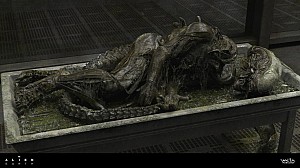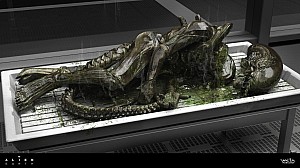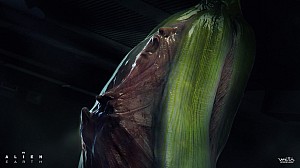Parasitic Plants Steal Genes from Their Hosts
Prometheus Forum Topic
Ebugogo
MemberOvomorphJun 9, 20121187 Views4 RepliesWow, I thought how xeno steals genes was just science fiction, turns out it actually does happen in nature!
[url=http://www.sciencedaily.com/releases/2012/06/120608100846.htm]http://www.sciencedaily.com/releases/2012/06/120608100846.htm[/url]
Parasitic Plants Steal Genes from Their Hosts
ScienceDaily (June 8, 2012) — New research published June 8 in BioMed Central's open access journal BMC Genomics reveals that the Malaysian parasitic plant Rafflesia cantleyi, with its 50cm diameter flowers, has 'stolen' genes from its host Tetrastigma rafflesiae. Analysis of these genes shows that their functions range from respiration to metabolism, and that some of them have even replaced the parasites own gene activity.
See Also:
Plants & Animals
Pests and Parasites
Microbiology
Endangered Plants
Earth & Climate
Exotic Species
Grassland
Strange Science
Reference
Transgenic plants
Computational genomics
Parasitism
Introduction to genetics
Vertical gene transfer is that between parents and their offspring, while horizontal gene transfer is the movement of genes between two different organisms. Bacteria use horizontal gene transfer to exchange resistance to antibiotics. Recent studies have shown that plants can also use horizontal gene transfer, especially parasitic plants and their hosts due to their intimate physical connections.
Rafflesia cantleyi is an obligate holoparasite (dependent on its host, and only that host, for sustenance), which grows on Tetrastigma rafflesiae, a member of the grape family. Researchers from Singapore, Malaysia and USA collaborated to systematically investigate the possibility of horizontal gene transfer between these two plants. By looking at the transcriptome (the transcribed products of switched on genes) they found 49 genes transcribed by the parasite, accounting for 2% of their total transcriptome, which originally belonged to the host. Three quarters of these transcripts appear to have replaced the parasites own version.
Most of these genes had been integrated into the parasite's nucleus, allowing the researchers to perform genomic analysis. Over time DNA randomly mutates and investigation of genetic drift between the genes for these transcripts, between the parasite and host, showed that some time has passed since the genes were acquired and that they were acquired gradually.
Prof Charles Davis, from the Harvard University Herbaria, who co-led this project with Prof Joshua Rest from Stony Brook University, explained, "The elevated rate of horizontal gene transfer between T. rafflesiae and its parasite R. cantleyi raises the possibility that there is a 'fitness' benefit to the parasite. For example they may improve the parasites ability to extract nutrients from the host, or help it evade the host's defences, as has been seen for a bacterial pathogen of citrus trees."
Prof Davis continued, "Furthermore it appears that about one third of the parasites own genes have evolved to be more like those of T. rafflesia. Finding out how T. rafflesia manages its genomic deception will provide us with real insights into the slow war between plant parasites and their hosts."
Replies to Parasitic Plants Steal Genes from Their Hosts
Hey Guest, want to add your say?
Are you an avid Alien fan looking for a dedicated online community of likeminded fans? Look no further! Create your own profile today and take part in our forums and gain XP points for all the content you post!










